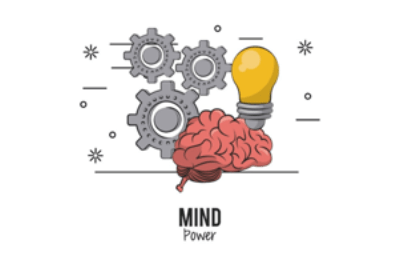Spending 10 Minutes a Day on Mindfulness Subtly Changes the Way You React to Everything
by Rasmus Hougaard & Jacqueline Carter & Gitte Dybkjaer January 18, 2017 Harvard Business Review
Leaders across the globe feel that the unprecedented busyness of modern-day leadership makes them more reactive and less proactive. There is a solution to this hardwired, reactionary leadership approach: mindfulness.
Having trained thousands of leaders in the techniques of this ancient practice, we’ve seen over and over again that a diligent approach to mindfulness can help people create a one-second mental space between an event or stimulus and their response to it. One second may not sound like a lot, but it can be the difference between making a rushed decision that leads to failure and reaching a thoughtful conclusion that leads to increased performance. It’s the difference between acting out of anger and applying due patience. It’s a one-second lead over your mind, your emotions, your world.
Research has found that mindfulness training alters our brains and how we engage with ourselves, others, and our work. When practiced and applied, mindfulness fundamentally alters the operating system of the mind. Through repeated mindfulness practice, brain activity is redirected from ancient, reactionary parts of the brain, including the limbic system, to the newest, rational part of the brain, the prefrontal cortex.
In this way, mindfulness practice decreases activity in the parts of the brain responsible for fight-or-flight and knee-jerk reactions while increasing activity in the part of the brain responsible for what’s termed our executive functioning. This part of the brain and the executive functioning skills it supports is the control center for our thoughts, words, and actions. It’s the center of logical thought and impulse control. Simply put, relying more on our executive functioning puts us firmly in the driver’s seat of our minds, and by extension our lives.
One second can be the difference between achieving the desired results or not. One second is all it takes to become less reactive and more in tune with the moment. In that one second lies the opportunity to improve the way you decide and direct, the way you engage and lead. That’s an enormous advantage for leaders in fast-paced, high-pressure jobs.
Rasmus Hougaard is the founder and managing director of The Potential Project, a leading global provider of corporate-based mindfulness solutions operating in twenty countries. He is the author of One Second Ahead: Enhancing Performance at Work with Mindfulness and is currently writing The Mind of the Leader (HBR Press, 2018)
Jacqueline Carter is a partner with The Potential Project and has worked with leaders from around the globe, including executives from Sony, American Express, RBC, and KPMG. She is a co-author of the book One Second Ahead: Enhancing Performance at Work with Mindfulness and is currently co-writing The Mind of the Leader (HBR Press, 2018)
Gitte Dybkjaer is a director with Potential Project and delivers mindful leadership training to Accenture, Microsoft, and Nordea.





